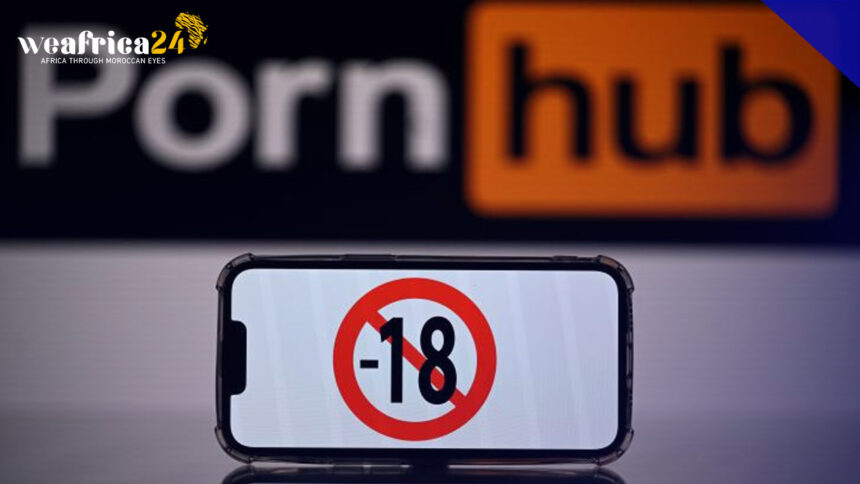Brussels announced on Wednesday that it has added three pornographic websites—Pornhub, Stripchat, and XVideos—to the list of very large online platforms subject to reinforced controls under the new legislation on digital services (DSA).
Similar to X (formerly Twitter), TikTok, Google, or Facebook (Meta), these platforms, each with over 45 million active users in the EU, will now be subjected to stricter rules to ensure, among other things, that they implement necessary measures for the protection of minors, as announced by the European Commission.
These enhanced rules will apply to the three pornographic sites starting from the end of April, four months after their designation by the Commission, which now plays the role of a digital watchdog within the European Union.
In total, after the 19 platforms announced in April, Brussels will have designated 22 very large platforms, whose activities will be closely scrutinized.
Pornhub, Stripchat, and XVideos are required to “adopt specific measures to hold online users, including minors, accountable and protect them, as well as properly assess and mitigate any systemic risks arising from their services,” explained the Commission. It emphasized its vigilance on “measures to protect minors from harmful content and combat the dissemination of illegal content,” such as violent or child pornography images.
Protecting Children
Thierry Breton, the Commissioner for the Digital Economy, highlighted that “creating a safer online environment for our children” is a priority in implementing the DSA.
The designation of these three sites as “very large online platforms” will allow for a “more in-depth examination of their algorithms and processes,” said Margrethe Vestager, the Vice President of the Commission. Considered to have “systemic importance” and “specific responsibilities” due to their size, these platforms are under the direct supervision of the European Commission, which has the power to impose sanctions.
Violators may face fines of up to 6% of their global annual revenue, or even a ban on operating in Europe in the case of serious and repeated violations.
Among their new obligations, very large platforms must analyze specific risks related to the dissemination of “illegal content” or content that “infringes fundamental rights” and submit a report to the Commission.
Increased Transparency
They are subject to increased transparency, requiring them to provide access to their data to researchers approved by the EU. They must also undergo, at their expense, an external audit once a year to verify their compliance with European rules.
Furthermore, obligations will apply to all online platforms, regardless of their size, starting from February 17, 2024. These include the obligation to act “promptly” to remove any illegal content as soon as the platform becomes aware of it, or the obligation to inform judicial authorities when they suspect a “serious criminal offense.”
They also include prohibitions, such as exploiting users’ “sensitive” data (gender, political affiliation, religious beliefs, etc.) for targeted advertising, and transparency obligations, such as the publication of key parameters used by recommendation systems.
As part of the DSA, Brussels opened a “formal investigation” on Monday into the social network X for alleged breaches of European rules on content moderation and transparency, a first under the new legislation.
Various preliminary investigations have also been opened in recent months on various subjects against Apple, Google, Meta (Facebook, Instagram), TikTok, Snapchat, YouTube, and Amazon, all under the DSA.







